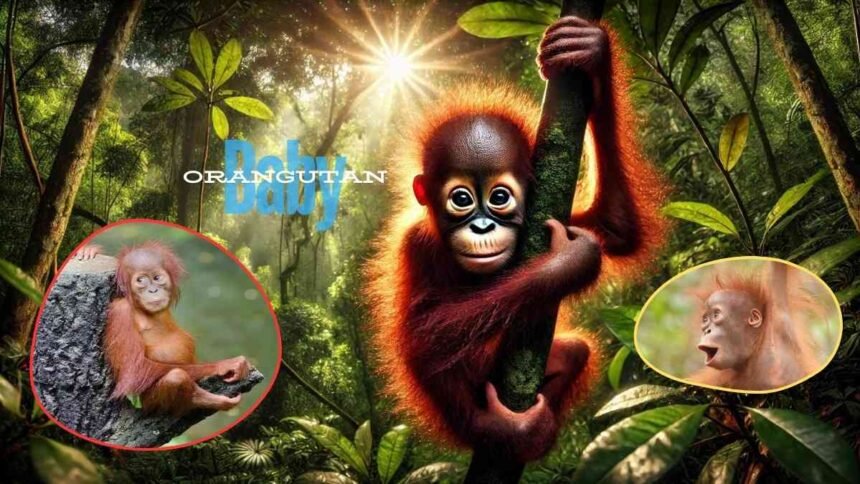Baby orangutan is critically endangered, and their survival is essential for maintaining the biodiversity of their ecosystems. Found in the rainforests of Borneo and Sumatra, these intelligent primates play a crucial role in their environment, from seed dispersal to forest regeneration. Despite their vital ecological contributions, baby orangutans face numerous threats, including habitat destruction and poaching. Conservation efforts are underway to ensure their protection, but continued global support is needed to preserve these incredible creatures for future generations.
Introduction to Baby Orangutan
Baby orangutan is among the most remarkable creatures in the animal kingdom, known for their intelligence, adaptability, and close kinship to humans. Native to Southeast Asia, these primates inhabit the lush rainforests of Borneo and Sumatra. Their distinctive orange fur, playful behavior, and expressive faces make them an icon of wildlife conservation efforts.
The Life of a Baby Orangutan
The early years of a baby orangutan are spent clinging to their mother, and learning essential skills for survival in the wild. The bond between a mother and her baby is strong, with the infant relying on her for food, protection, and education. Orangutans are known for their long childhoods, which can last up to eight years, allowing the young to develop the knowledge necessary for living independently in the dense forests.
Importance of Orangutans in Their Ecosystem
Orangutans, especially babies, play a critical role in their ecosystems. As they feed on a variety of fruits, they become natural seed dispersers, helping to regenerate the forests. Their presence ensures the balance of the rainforest ecosystem, making them a keystone species. Without orangutans, many trees and plants would struggle to thrive, impacting the entire biodiversity of their habitat.
Threats to Baby Orangutans
Despite their ecological importance, baby orangutan face numerous threats. The most significant threat is deforestation, driven by the demand for palm oil, logging, and land clearing for agriculture. As their habitat shrinks, these animals become more vulnerable to poaching and illegal wildlife trade. Many baby orangutan is captured and sold as pets, separated from their mothers in the process.
Conservation Efforts for Orangutans
Global conservation efforts have been initiated to protect orangutans, with a particular focus on saving baby orangutans from poaching and habitat destruction. Organizations across the world are involved in rehabilitation programs, where rescued babies are given a second chance at life in the wild. Sanctuaries and protected forest areas are being established to ensure that orangutans have a safe space to grow and thrive.
How You Can Help
Conservation is not limited to large organizations; individuals can play a role in protecting baby orangutan. Reducing the consumption of products that contribute to deforestation, such as palm oil, is a critical step. Supporting conservation organizations, spreading awareness, and advocating for policy changes are other ways to contribute to the survival of these primates.
The Future of Baby Orangutan
The future of baby orangutan depends largely on the success of conservation efforts and global support. With continuous habitat loss and poaching, the survival of this species is at a critical juncture. However, with renewed efforts in reforestation, protection of natural habitats, and education about the importance of these primates, there is hope that baby orangutan will continue to thrive for generations to come.
Conclusion
For More Visit, Viraltimes.co.uk







